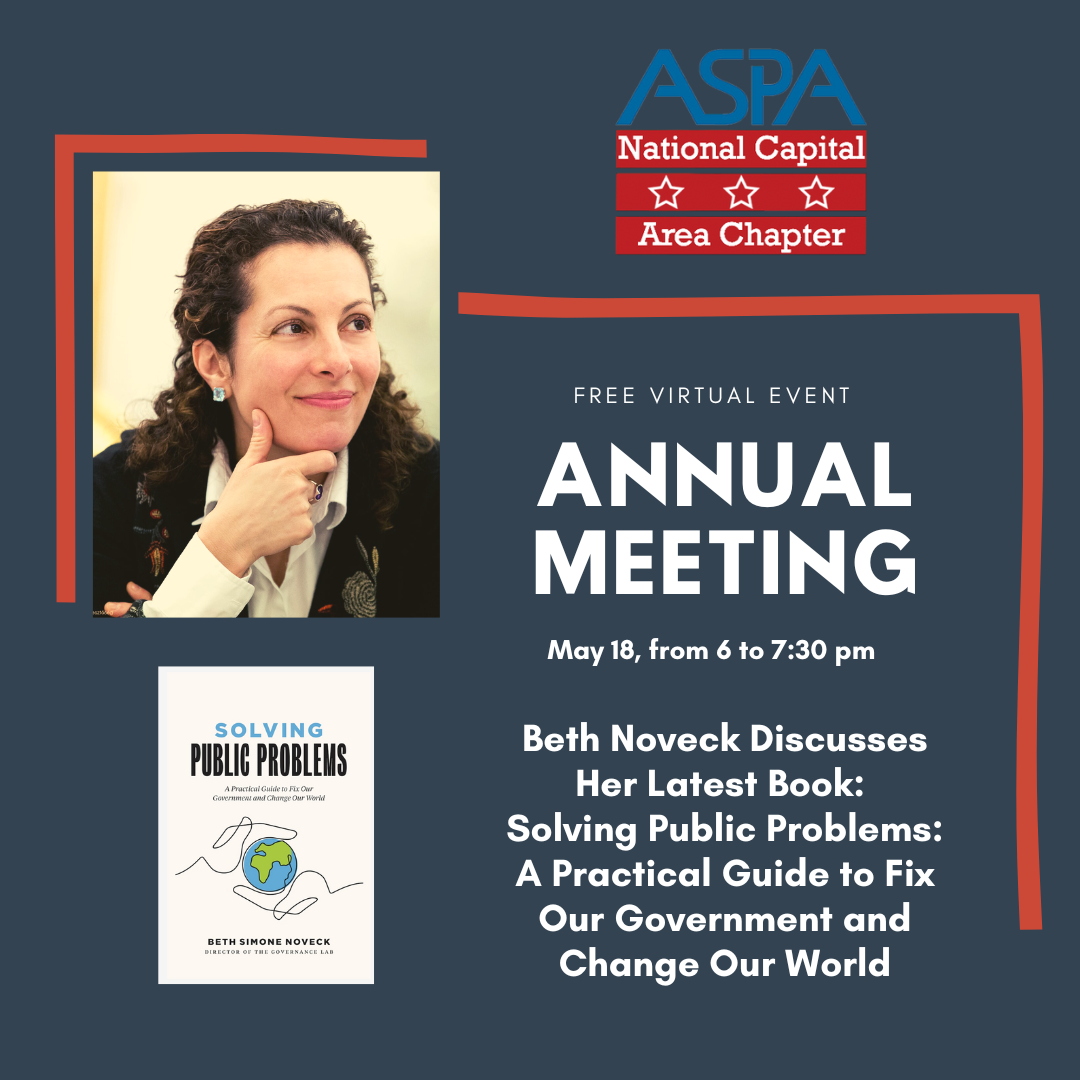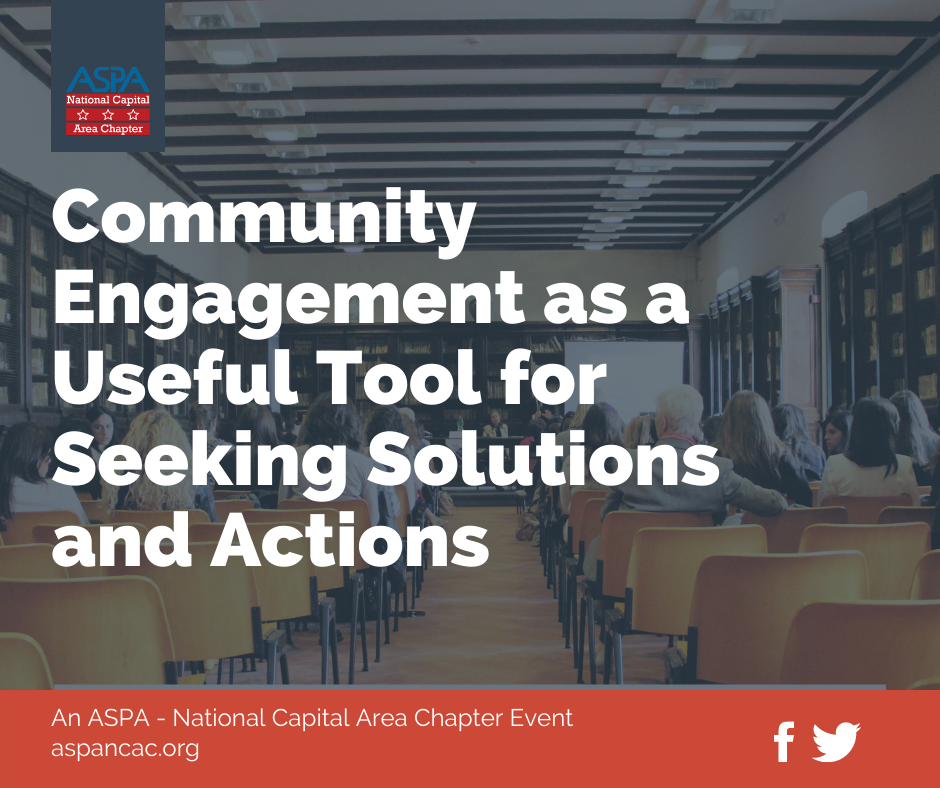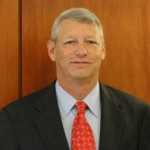The U.S. Government Accountability Office (GAO) was recently ranked #1 among mid-sized agencies as part of the Partnership for Public Service’s list of the Best Places to Work in the Federal Government. And while rankings for leadership on diversity issues were not conducted this year, GAO has long held a top spot for its commitment to diversity as well. To learn more about how GAO integrates social equity into their organization and work, I spoke with Zina Merritt, the Special Assistant to the Comptroller General for Diversity, Equity, and Inclusion. Prior to this role, Zina directed audits of national security and international programs and was a longtime advocate of equal employment opportunity to support diversity, equity, inclusion, and accessibility (DEI&A) at all levels of the agency. In November 2017, GAO expanded its mission core values of accountability, integrity, and reliability to include people values—being valued, respected, and treated fairly. The underlying tenets of these people values factor into values Zina has long advocated for, and consequently the Comptroller General appointed Zina to serve in this role as GAO’s executive level DEI&A strategist.
Zina has a variety of responsibilities at GAO that include identifying and sharing best practices and programs to support DEIA and monitoring and measuring related performance outcomes of programs and initiatives. She also advises GAO’s Executive Committee, other senior leaders, managers, employee resource groups, and individual employees, while addressing concerns and responding to employee needs throughout the agency. When asked about her strategic
management role, she explained that GAO’s commitment to DEI&A is codified into the organization’s strategic plan and DE&I Strategic Implementation Plan. Specifically, GAO’s current agency strategic plan includes a performance goal that promotes identifying, attracting, and retaining a workforce with the skills necessary to achieve operational excellence. Another performance goal promotes enhancing and sustaining a culture that is fair, diverse, and inclusive and provides opportunities for all employees to excel. In 2019, GAO transformed its prior Workforce Diversity Plans into what is currently our DE&I Strategic Implementation Plan, and it is currently expanding upon this effort by adding accessibility as a focus area. The plan establishes GAO’s processes to review data and trends on demographic characteristics, comparisons to other federal workforces, and DEI&A related performance management goals and metrics. GAO executive level leaders also have explicit leadership and management expectations. For example, the annual performance expectations for GAO’s senior executives clearly communicates the role that they should have as senior leaders in supporting and implementing these efforts. Management and employees also have a critical role in this plan’s implementation through their constructive ongoing engagement in DEI&A efforts.
Zina noted that “Most importantly, effective DEI&A efforts require commitment from the organization’s head, who sets the tone at the top by supporting and engaging in DEI&A efforts at all levels. This includes regularly engaging with senior leadership, managers, affinity groups, and employees on DEI&A related issues to include some of the tough topics, such as acknowledging and communicating with employees regarding external events impacting employees and their families.” She praised the U.S. Comptroller General, Gene Dodaro, for affirming the agency’s commitment to DEI&A in his annual EEO statement to employees, regularly engaging with GAO’s diversity counsel and affinity groups, and participating in many DEI&A events.
Zina explained that the strong emphasis GAO places on respecting, valuing, and treating its employees fairly through a strong commitment to maintaining a skilled and diverse workforce and fostering an inclusive work environment has a direct bearing on GAO’s ability to fulfill its mission: to support the Congress by making government more efficient, effective, and equitable. Research shows that diverse groups allow for critical and innovate thinking, as well as the ability
to better anticipate alternative viewpoints. By leveraging each employee’s unique skills, talents, experiences and characteristics, GAO can broaden the range of perspectives in and approaches to the work. Events over the past year included the pandemic, incidents of police brutality of African Americans, and the most recently, targeted acts of hatred towards Asian Americans. These have brought increased visibility of the inequities and disparities that exist in
this nation and in how the government is addressing these issues. Despite some of the associated challenges, GAO maintained continuity of its DEI&A efforts in their virtual work environment. Zina says that “GAO believes that our workforce should be as diverse as the populous we serve” and that this belief definitely contributes to making GAO such a great place to work.
It also reflects GAO’s commitment to approaching audits of federal programs with a critical eye. GAO included equity as one of the 5 core auditing pillars in an April 2021 Yellow Book update. The technical update provides expanded definitions and examples of the core pillars for examining whether government programs are being administered in a manner that is effective, efficient, economical, ethical, and equitable. This commitment is not new, as equity has appeared in previous editions of the Yellow Book, and GAO has been providing Congress with analysis that includes equity for decades. For example, since the 1970s, GAO has examined racial inequalities in education, voting rights, equal employment, racial profiling, representation in the census, access to capital and housing, health care, and the military justice system. In
September 2020, GAO launched a webpage on Race in America that includes a collection of GAO reports on this topic.
GAO is currently reporting on how the COVID-19 pandemic is affecting different racial groups and also has more work planned. GAO will be evaluating whether the Transportation Security Administration and U.S. Customs and Border Protection have controls in place to prevent discrimination at traveler screening checkpoints. Additionally, GAO has work underway examining law enforcement’s use of force and will be looking at initiatives, such as de-escalation training, that could help reduce the use of force. While GAO has been examining program disparities for many decades, it continues to refine its audit tools. In November 2020, GAO convened the Emerging Risks Taskforce to ensure the agency is positioned to tackle emerging risks of importance to Congress and help teams to identify and incorporate issues related to justice, equity, diversity, and inclusion in their assessments, consistent with the agency’s core values and quality assurance standards. This task force will help GAO develop tools to better assess whether and how DEI&A issues are important to audits, engaging the right people within and outside of GAO to provide a diverse range of perspectives, developing and employing the right methodologies needed to answer related researchable questions, and ensuring that review teams have an appreciation for the limitations and sensitivities associated with this kind of work.
Zina is responsible for providing progress updates to the Executive Committee, employees, and select Congressional Committees on GAO’s DEI&A efforts, and also represents GAO at external forums focused on diversity, equity, inclusion, and accessibility topics. On August 31, she presented, along with other GAO staff, expert researchers, and federal employees, at GAO’s Centennial Webinar Series: Foundations for Accountability: Oversight Issues for the Next
100 Years, on the topic of Leading Practices to Manage, Empower, and Oversee the Federal Workforce. To see more opportunities to view webinars in the series go to https://www.gao.gov/about/what-gao-does/hundred-years-of-gao/anniversary-events.
Submitted by NCAC Board Member, Steven Putansu





